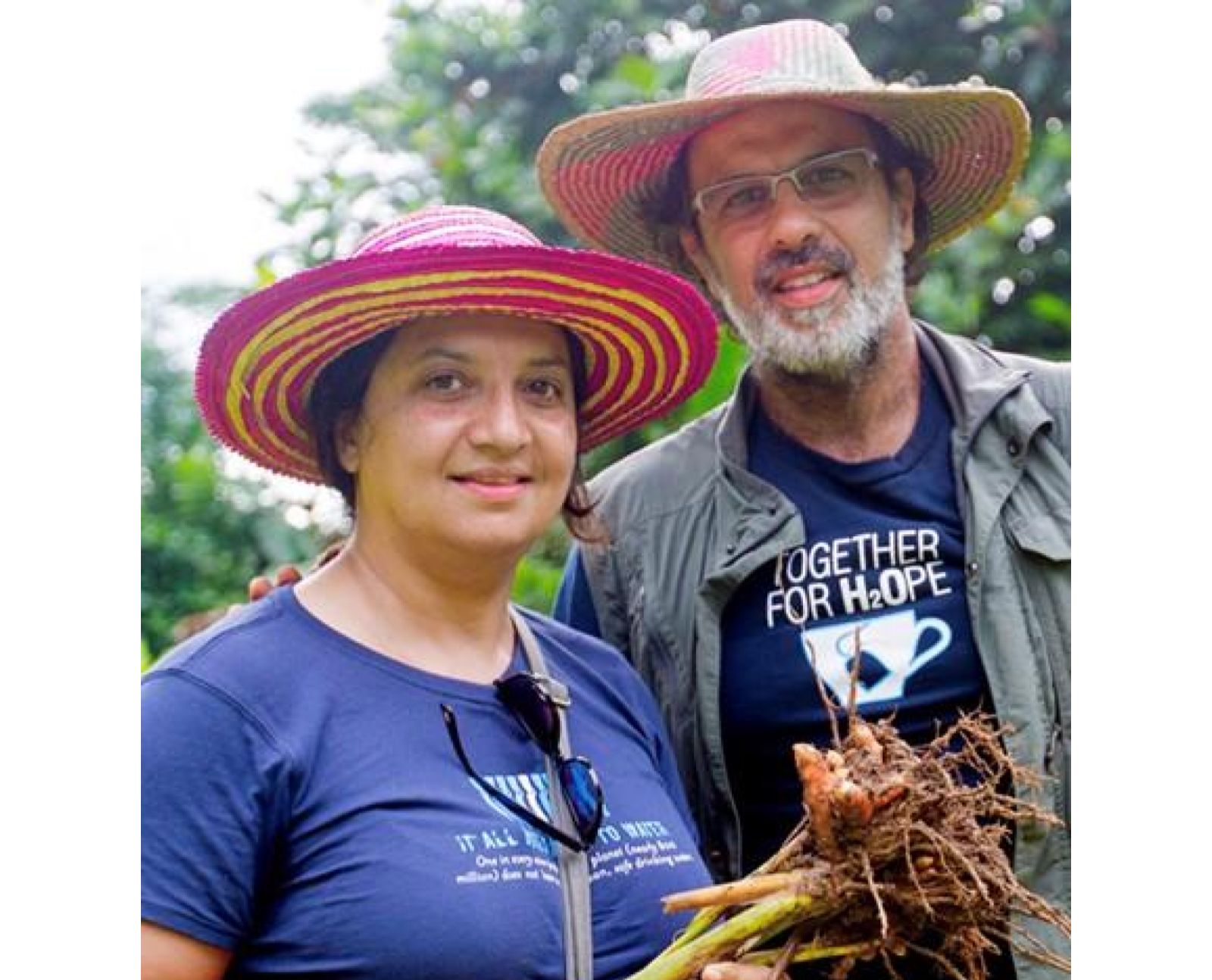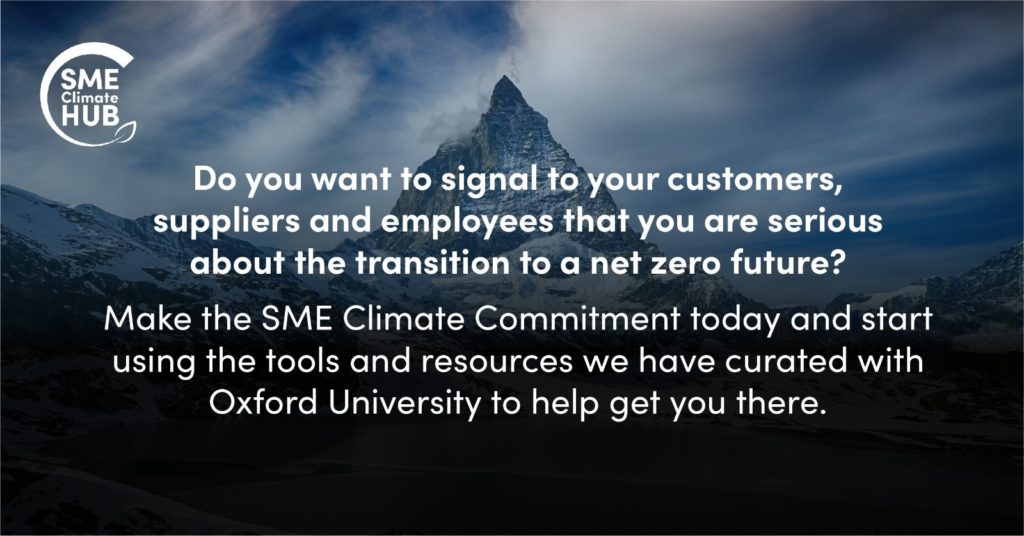For Avyannaa, sustainability is a path to build resilience and ensure success
A dynamic small Indian enterprise founded in May 2022, Avyannaa is committed to providing eco-friendly alternatives to lifestyle and beauty products, such as neem combs, bamboo toothbrushes, and coconut cutlery. Their goal is to provide chemical-free products made of sustainable materials to discerning Indian and European customers who care deeply about preserving the health of our planet for generations to come.
(MSMEs working to reduce their emissions and become more sustainable can kickstart their climate journey by making the SME Climate Commitment. Learn more here.)

This MSME made the decision to join the SME Climate Hub in line with its objectives to support small and medium-sized businesses in taking climate action. Founder Vishakha Vidhani explains, “The Hub has helped me be more aware about emissions reduction opportunities and consequently reducing the carbon footprint of my business. Being a serious sustainability advocate and owning a sustainable brand, I was motivated to make the SME Climate Commitment. I encourage my peers to do the same, because it’s high time we take collective action for the planet. Small businesses can play an big role in the fight against climate change.”
Taking steps to reduce emissions
Avyannaa’s motivation for climate action originates from its deep commitment to environmental stewardship and the urgent need to battle climate change. The company has also experienced an increase in consumer demand for eco-friendly products and socially responsible businesses, which has fueled their commitment toward sustainability.
The business discovered that a majority of its emissions could be attributed to product packaging and transportation. Avyannaa has now implemented several measures throughout their operations to address these emissions hotspots, such as:
- Local product sourcing which minimises emissions from transportation
- Efficient packaging, utilising recyclable and recycled materials
- A minimal waste strategy applied by recycling the packaging received by suppliers and avoiding adding more layers unless absolutely necessary (for delicate products made of coconut or glass, for example), and
- Monitoring freight emissions by choosing rail or shipping as environmentally friendly options (where feasible) for product deliveries
In addition to the above measures, resources have been allocated towards staff training. This entails raising awareness about sustainability and making more eco-friendly decisions in terms of personal lifestyles and business operations (such as the mode of transportation used to carry goods and the packaging used). Monthly team meetings are held with the goal of coming up with new ideas for environmental solutions. As a result, a shared culture of sustainability, inclusivity, and continuous improvement is fostered. Avyannaa sees these investments as a deliberate move in the direction of improved market resilience and long-term corporate sustainability.
Stakeholder engagement including employees, buyers, and suppliers, is crucial in Avyannaa’s efforts to reduce greenhouse gas (GHG) emissions. The company actively engages in discussions with its suppliers to encourage them to adopt more sustainable practices, and has successfully assisted several of them in making the shift towards more environmentally-friendly packaging. Every Avyannaa delivery includes a handwritten message telling clients about the recycled packaging and encourages them to act responsibly by recycling/reusing the packaging and product parts after use.

Impact of implemented measures
The emissions reduction approaches undertaken at Avyannaa have had a positive impact on the business and the environment. The company has saved money by reducing waste and improving packaging efficiency. Through these measures and their sustainable product line, Avyannaa has also acquired a competitive advantage and expanded their customer base both within and outside of India.
Challenges and opportunities
Founder Vishakha Vidhani feels that implementing sustainability measures, although essential, does come with some challenges. Barriers include limited awareness amongst consumers and supply chain actors, upfront costs associated with implementing sustainability measures, perception of high costs of sustainable products amongst consumers, inadequate waste collection and management infrastructure, and a complex and fragmented regulatory landscape.
Despite this, Vishakha believes that with the correct interventions, these challenges can be resolved. She recommends policy or financial incentives such as lower or no taxation on sustainable products, consumer advocacy, and collaborative initiatives among various stakeholders to address barriers.
Vishakha also advises her MSME peers to prioritise climate action now in order to stay ahead of the curve, with customers making more conscientious purchasing decisions and increasing rules and regulations requiring environmental considerations in business.
Paving the road ahead
Avyannaa remains committed to sustainability and responsible business practices. While the company hopes to expand its customer base both within and outside of India, it also wants to diversify its eco-friendly product line, work with suppliers to improve their sustainability practices, obtain relevant standards and certifications, and continue its consumer awareness campaigns. The company further wants to improve its impact monitoring and reporting and intends to explore the SME Climate Hub tools for measurement and reporting.
To her peers, Vishakha recommends they prioritise sustainability. “Sustainability isn’t just a trend, it’s a path to resilience and success in an evolving business landscape. Embrace eco-friendly practices, engage with ethical suppliers, and educate your workforce. Your commitment will certainly resonate with conscientious consumers and bolster your brand.”
Tell us what climate action you’ve taken
MSMEs like Avyannaa provide invaluable insights into how small businesses can identify areas of intervention and begin taking climate action. Interested in sharing your own climate journey for potential inclusion as a business spotlight? Get in touch.


